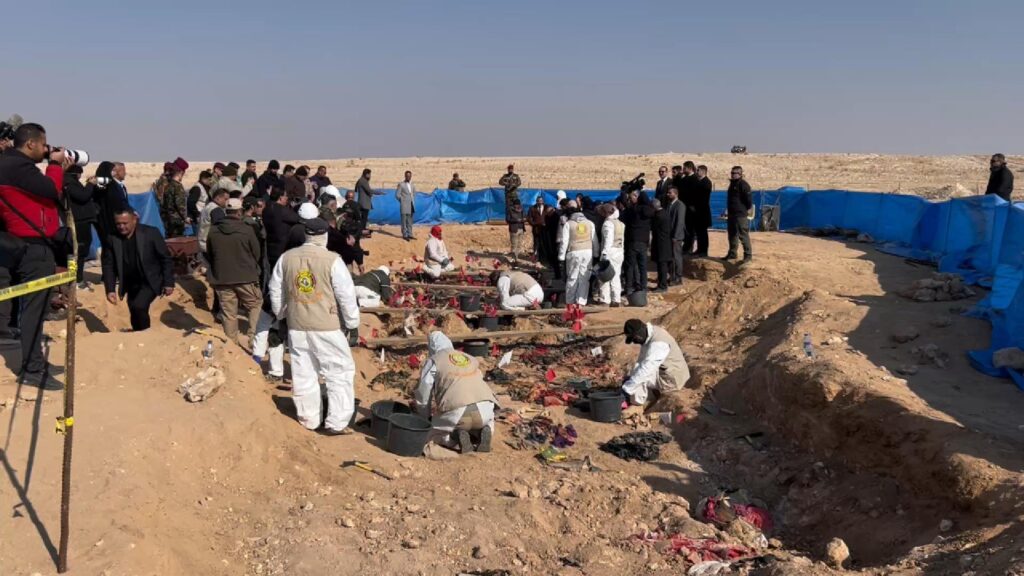Obsolete narcotics law hampers fight against drugs in Kurdistan

Rates of drug use could “get out of hand,” warned Judge Abdulrahman Zebari, head of Duhok’s Criminal Court, appearing on Rudaw TV’s Legal Ranj programme Thursday night.
There are an estimated 10,000 drug users across the Kurdistan Region, the head of a local NGO, Organization for Countering Drugs, Ibrahim Ramadhan, told Rudaw last year.
The law on dealing or using drugs is 54 years old and has “shortcomings,” said the judge. It makes no distinction between dealers and users.
Zebari pointed out that Iraq introduced a new narcotics law in 2017, but the Kurdistan Regional Government (KRG) has yet to adopt it. Under the Iraqi constitution, all laws passed in Baghdad do not automatically come into force in the Kurdistan Region. The parliament and the KRG have the right to reject or amend Iraqi laws not related to federal matters.
The 1965 law does give judges the discretion to send a person to a rehabilitation centre or to jail, but with a lack of rehab options it’s a useless provision, Zebari added. Some judges opt to release drug users without a full investigation out of sympathy for the family, he said.
The parliament will work to develop a law in its new term, collaborating with judges, psychologists, and doctors, MP Mem Askandar Nerwayi said, appearing on the same TV programme. Without an adequate legal way to counter drug use, it has “evolved from an issue to a phenomenon,” he said.
Insecurity because of the war against ISIS and the large number of internally displaced persons (IDPs) sheltering in the Region contributed to rising drug use, a problem compounded by shortfalls in education and awareness, he added.
Unemployment and easy access to drugs are also factors, according to Dr. Adnan Asaad, from the Asayesh (Kurdish security)’s centre for countering drugs. The biggest problem he sees is that families don’t know what their children are doing and don’t notice changes in behaviour that are tell-tale signs of drug use. And the whole family is impacted by the situation.
“An entire family crumbles, not an individual alone,” Asaad said.
Drug use by teenagers is becoming a problem, confirmed Zaki Salih, director of a women’s and children’s correction centre in Duhok. He had seen youth as young as 13 using drugs and then start stealing in order to pay for their habit.
“They don’t just need a correction facility, they also need a centre for curing them,” Salih said.
A former addict said he knows scores of people who would be ready to enter a rehabilitation program.
“If such a centre opens in Duhok, and if 100 do this, I will bring 80 of them,” said Dilgash Nerwayi. After beating his addiction, he has become an advocate working to help other addicts.
What the KRG needs is to put a law in place that treats drug users as people with an illness, and not convicts, he said.
The law should also “differentiate between users and dealers,” he said.
There are some who want to put the blame outside of the Kurdistan Region. MP Nerwayi claimed that injecting drugs into the Region “is the best way to fight Kurds.” Kurdistan’s enemies are no longer able to commit mass killings or chemical attacks against Kurds so they resort to tactics like encouraging drug use, he said, pointing the finger at Iran.
Due to its proximity to Afghanistan, Iran is a major hub of drugs in the region. Iraq shares a nearly 1,500-kilometre long border with Iran and both Iraqi and Kurdish law officials regularly confiscate drugs at the border.
Judge Zebari, however, warned against blaming exterior factors and ignoring Kurdistan’s domestic problems.
There is no “plot” against Kurdistan, he argued. In fact, 99 percent of users and dealers are local.
“We have rarely seen a foreign dealer, a non-Kurd from outside of Kurdistan, arrested,” he said.

